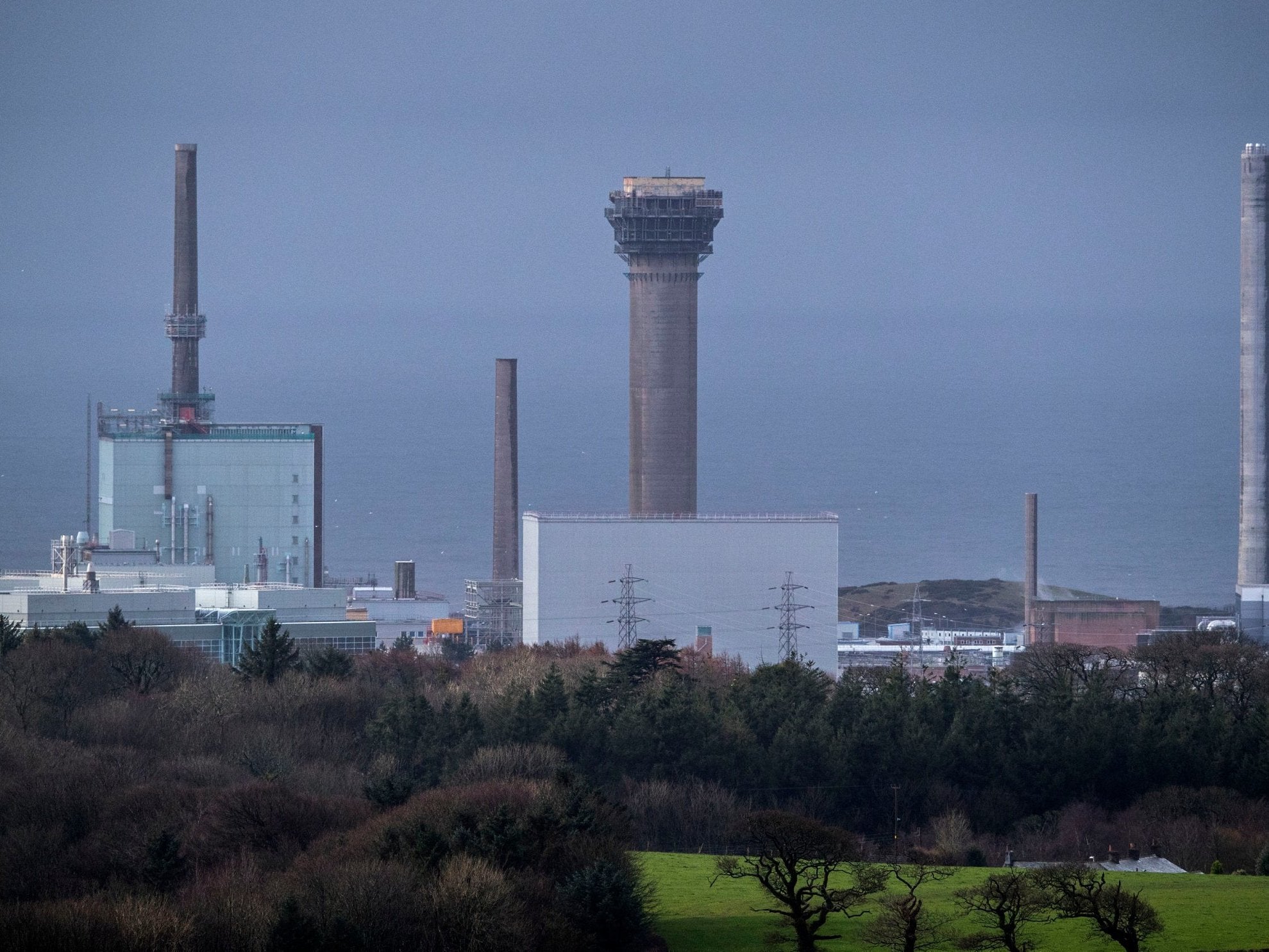Sellafield nuclear decommissioning work ‘significantly’ delayed and nearly £1bn over budget, report reveals
Waste facility due to be fully decommissioned by 2120 at cost of £121bn

Nuclear fuel reprocessing and decommissioning site Sellafield is running behind schedule with most major projects and is on track to record an overspend of £913m, according to an official report.
The site, previously described by its own management as one of Europe’s most hazardous facilities, is used for cleaning up stored nuclear waste.
The plant opened in 1956 and has been state-run since 2016. It is due to be fully decommissioned by the year 2120 at a cost of £121bn.
But the Public Accounts Committee (PAC) said it remained sceptical about the Nuclear Decommissioning Authority's (NDA) long-term strategy to decommission Sellafield until work was completed.
The committee said the NDA had not systematically reviewed why projects kept running into difficulties, or analysed the constraints preventing it from making faster progress.
The committee last examined progress at Sellafield in March 2015 and found major programmes and projects were significantly behind schedule and over budget.
Its latest report said progress had been made in reducing delays and expected cost over-runs with 14 major projects at the site in Cumbria, which have a combined lifetime cost estimate of £6bn.
The committee said progress had been made in the past few years, but added that there was a long way to go.
Sir Geoffrey Clifton-Brown, deputy chairman of the committee, said: “This report is critical of the Nuclear Decommissioning Authority's performance. The Government's oversight of the NDA's performance could and should be much better, particularly on projects at Sellafield that cost a considerable amount of public money.
“This report follows the committee's earlier report into the NDA's Magnox contract. The NDA failed in both the procurement and management of this contract and cost the taxpayer £122 million.”
He added that the Business Department needed to “seriously get a grip” on its oversight of nuclear decommissioning.
The committee recommended the Business Department should publish an assessment of the NDA's performance every three years.
The MPs said the NDA had cancelled three projects since 2012 after spending £586 million of taxpayers’ money on them.
Its report added: “We are not convinced that the NDA is achieving the wider economic benefits that would help justify the vast amounts of public investment at Sellafield.”
A Business Department spokesman said: “Decommissioning is an important part of the nuclear cycle and, as the PAC recognises, considerable progress has been made at Sellafield.
“This includes strengthening the governance structure and greater use of cutting-edge technologies to ensure the highest possible safety standards are maintained, whilst reducing the costs of decommissioning by 20 per cent by 2030.”
Join our commenting forum
Join thought-provoking conversations, follow other Independent readers and see their replies
Comments